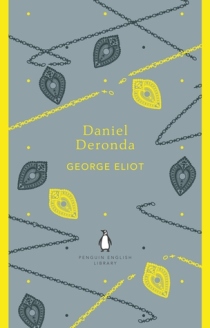

Rating – 3*
I have wanted to read this little essay collection by George Eliot for a very long time, and I thought that now was as good of a time as any. It’s a punchy little book in the Penguin Great Ideas series and contains half a dozen essays alongside the titular one.
Silly Novels is a 35 page essay in which Eliot criticises less able female authors of the period in which she is writing. She writes on how many writers perpetuated negative stereotypes of women which only enhanced the subjugation of women in history. She essentially summarises most novels of the time in one sweeping statement which covers pretty much all romantic novels written by women: a beautiful main character who falls in love with a member of nobility under exceptional circumstances. She argues that all these ‘silly novels’ give a bad name to the female novelist in general, which in turn makes it impossible for the actually talented authors to get recognition for their work. Hence why Eliot herself wrote under a male pseudonym, as did all three of the Bronte sisters.
The titular essay had me laughing, because what she outlines as the issue with many female novelists is still largely something I can relate to, especially when reading books from the same period in which she wrote.
However, while I loved the first essay – the first essay was marvellous – the remaining 4 or 5 didn’t quite hit the mark for me. They were a lot more specific reviews and essays which were more period specific and, from my perspective, not as easy related to. I found them quite hard to enjoy when I hadn’t read any of the source material which inspired them. As a result, I did find myself skimming a lot of the other essays as they just weren’t keeping my interest.
The tile essay though is a perfect look at 19th Century feminism, and a really good step up from Mary Wollstonecraft’s A Vindication of the Rights of Women which was published around 50 years prior at the turn of the century. There is an essay in which Mary Wollstonecraft is referenced, which is quite a nice step between the two!
I’d say this is definitely worth a read if you’re interested in essay collections, early feminism, or George Eliot in general. I’d also say that if you’ve read A Room of Ones Own or A Vindication of the Rights of Women this is definitely a good essay collection to pick up as it bridges the gap between the two. Woolf cites Eliot as one of her favourite novelists, and one of the only ‘grown up’ writers – and reading this I really get where she is coming from.






 I have wanted to read this book for a long time now and I decided that it was high time to get around to it before I went back to uni at the end of the month. The most off-putting factor about this book is the sheer enormity (the edition I was reading was 924 pages).
I have wanted to read this book for a long time now and I decided that it was high time to get around to it before I went back to uni at the end of the month. The most off-putting factor about this book is the sheer enormity (the edition I was reading was 924 pages). I picked this up on a whim, mainly because I saw it and I have wanted to read some George Eliot for ages – however Middlemarch seemed a little intimidating during my exams and when I saw the size of this I nabbed it up. I knew relatively little about it and went in to it blind – which was fun.
I picked this up on a whim, mainly because I saw it and I have wanted to read some George Eliot for ages – however Middlemarch seemed a little intimidating during my exams and when I saw the size of this I nabbed it up. I knew relatively little about it and went in to it blind – which was fun.